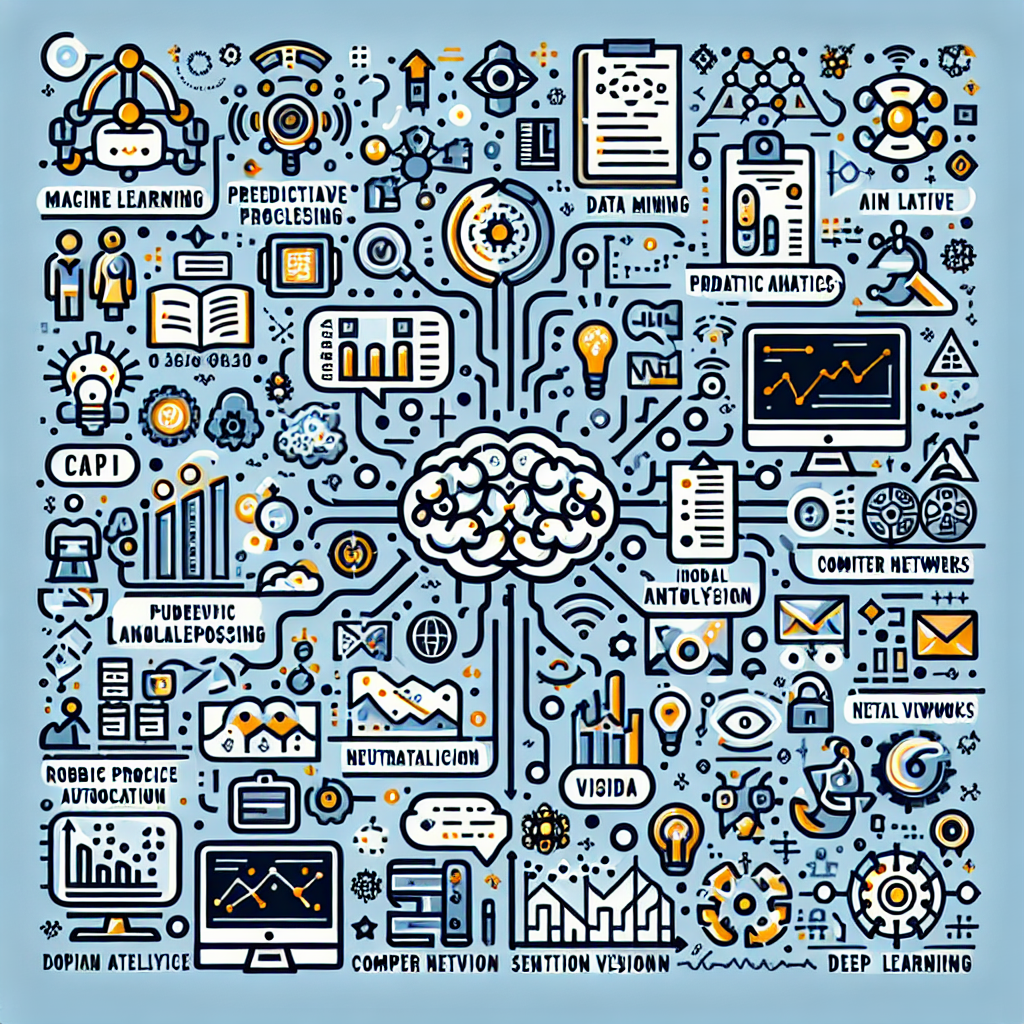Artificial Intelligence (AI) has become a game-changer in the world of business intelligence. With the ability to analyze vast amounts of data quickly and accurately, AI is transforming the way businesses make decisions and operate. In this article, we will explore 10 ways AI is revolutionizing business intelligence and how it is shaping the future of the industry.
1. Predictive Analytics
One of the key ways AI is transforming business intelligence is through predictive analytics. AI algorithms can analyze historical data to identify patterns and trends, allowing businesses to make more informed decisions about the future. By predicting customer behavior, market trends, and potential risks, companies can stay ahead of the curve and anticipate changes before they happen.
2. Natural Language Processing
AI-powered natural language processing (NLP) is changing the way businesses interact with data. NLP algorithms can analyze unstructured data, such as text and speech, to extract valuable insights and information. This allows businesses to understand customer feedback, sentiment, and opinions more effectively, leading to improved decision-making and customer satisfaction.
3. Personalized Recommendations
AI algorithms can analyze customer behavior and preferences to provide personalized recommendations. By using machine learning techniques, businesses can offer tailored products and services to individual customers, increasing sales and customer loyalty. This level of personalization is revolutionizing the way businesses engage with their customers and drive revenue.
4. Automated Reporting
AI-powered business intelligence tools can automate the process of generating reports and dashboards. By analyzing data in real-time and presenting insights in a visual format, businesses can save time and resources on manual reporting tasks. Automated reporting also enables faster decision-making and allows businesses to focus on strategic initiatives rather than data processing.
5. Fraud Detection
AI is transforming business intelligence by enhancing fraud detection capabilities. AI algorithms can analyze transactional data to identify unusual patterns and anomalies that may indicate fraudulent activity. By detecting fraud in real-time, businesses can protect their assets and reputation, leading to increased trust and confidence among customers and stakeholders.
6. Supply Chain Optimization
AI-powered business intelligence tools can optimize supply chain operations by analyzing data from various sources, such as suppliers, manufacturers, and distributors. By identifying inefficiencies and bottlenecks in the supply chain, businesses can reduce costs, improve delivery times, and enhance overall performance. AI is enabling businesses to make data-driven decisions that streamline operations and drive efficiency.
7. Customer Segmentation
AI algorithms can segment customers based on various attributes, such as demographics, behavior, and preferences. By dividing customers into distinct groups, businesses can tailor marketing campaigns and offerings to target specific segments more effectively. Customer segmentation enables businesses to personalize their interactions with customers, leading to increased engagement and satisfaction.
8. Sentiment Analysis
AI-powered sentiment analysis tools can analyze customer feedback and social media data to determine sentiment and opinions. By understanding how customers feel about their products and services, businesses can identify areas for improvement and address concerns proactively. Sentiment analysis enables businesses to build stronger relationships with customers and enhance brand reputation.
9. Real-time Insights
AI is enabling businesses to access real-time insights from their data, allowing them to make faster and more informed decisions. By analyzing data in real-time, businesses can respond to changing market conditions, customer preferences, and competitive threats quickly. Real-time insights empower businesses to stay agile and adapt to evolving business environments.
10. Enhanced Decision-making
AI-powered business intelligence tools are enhancing decision-making processes by providing actionable insights and recommendations. By analyzing data from multiple sources and applying advanced analytics techniques, businesses can make data-driven decisions that drive growth and profitability. AI is empowering businesses to make smarter decisions with confidence and clarity.
FAQs:
Q: How can AI benefit businesses in terms of cost savings?
A: AI can benefit businesses in terms of cost savings by automating repetitive tasks, optimizing operations, and reducing errors. By analyzing data more efficiently and accurately, AI can help businesses identify cost-saving opportunities and streamline processes.
Q: How can AI improve customer engagement?
A: AI can improve customer engagement by providing personalized recommendations, analyzing customer feedback, and offering real-time support. By understanding customer preferences and behavior, businesses can tailor their interactions with customers to enhance engagement and satisfaction.
Q: What are the challenges of implementing AI in business intelligence?
A: Some challenges of implementing AI in business intelligence include data privacy concerns, integration with existing systems, and the need for skilled professionals. Businesses must address these challenges to successfully leverage AI for business intelligence.
In conclusion, AI is transforming business intelligence in numerous ways, from predictive analytics to personalized recommendations. By harnessing the power of AI, businesses can gain valuable insights, improve decision-making, and drive growth. As AI continues to evolve, its impact on business intelligence will only grow stronger, shaping the future of the industry and revolutionizing how businesses operate.

